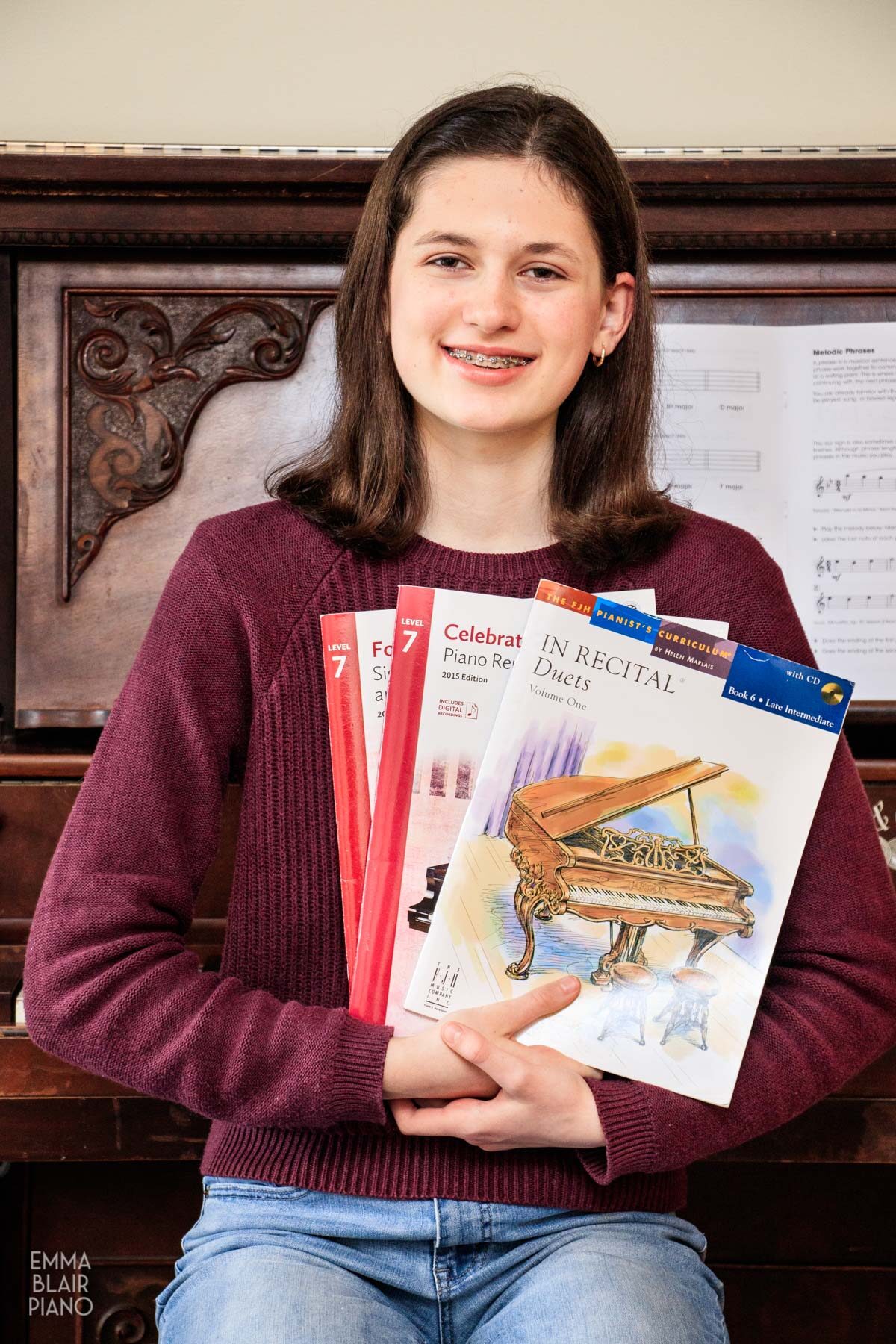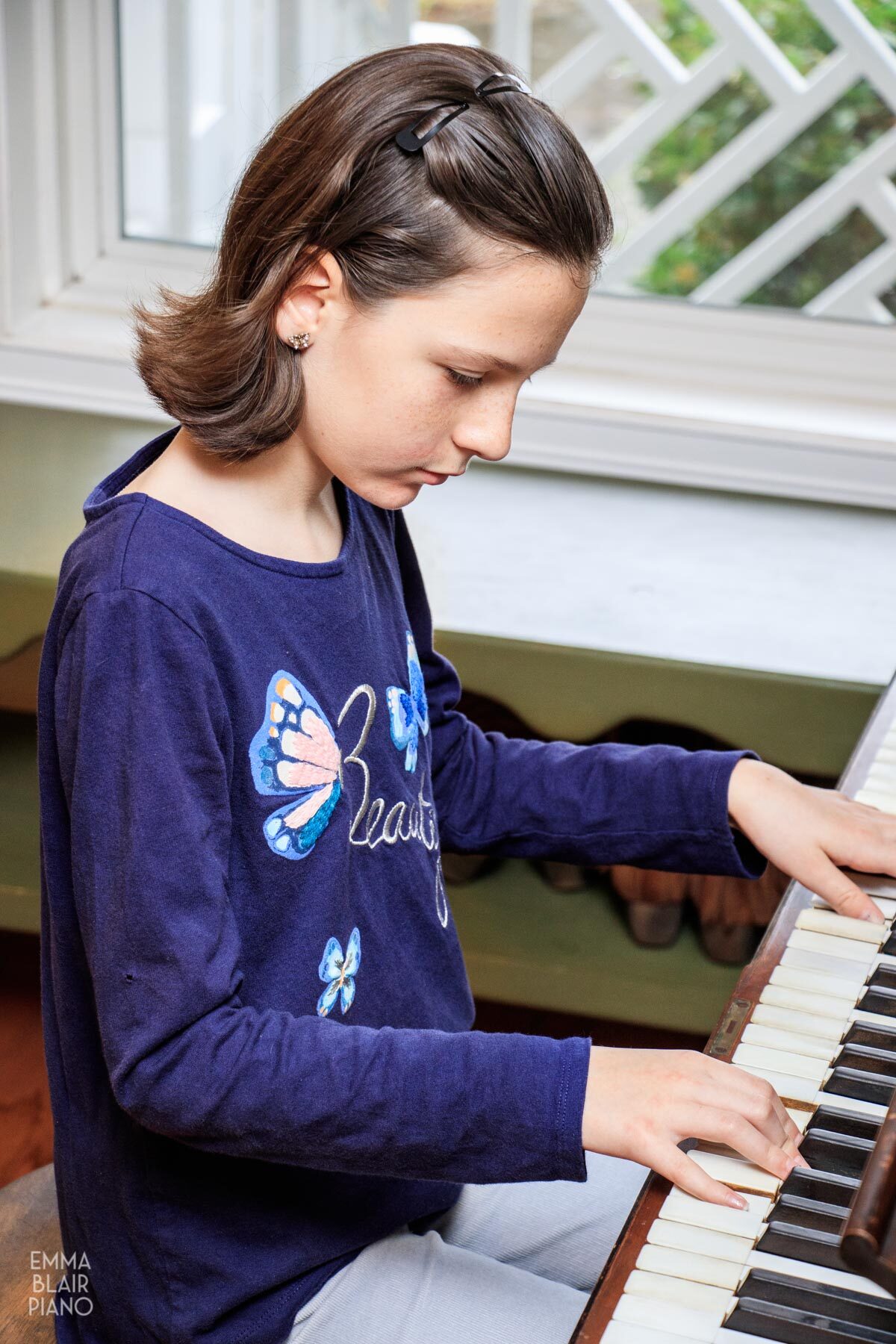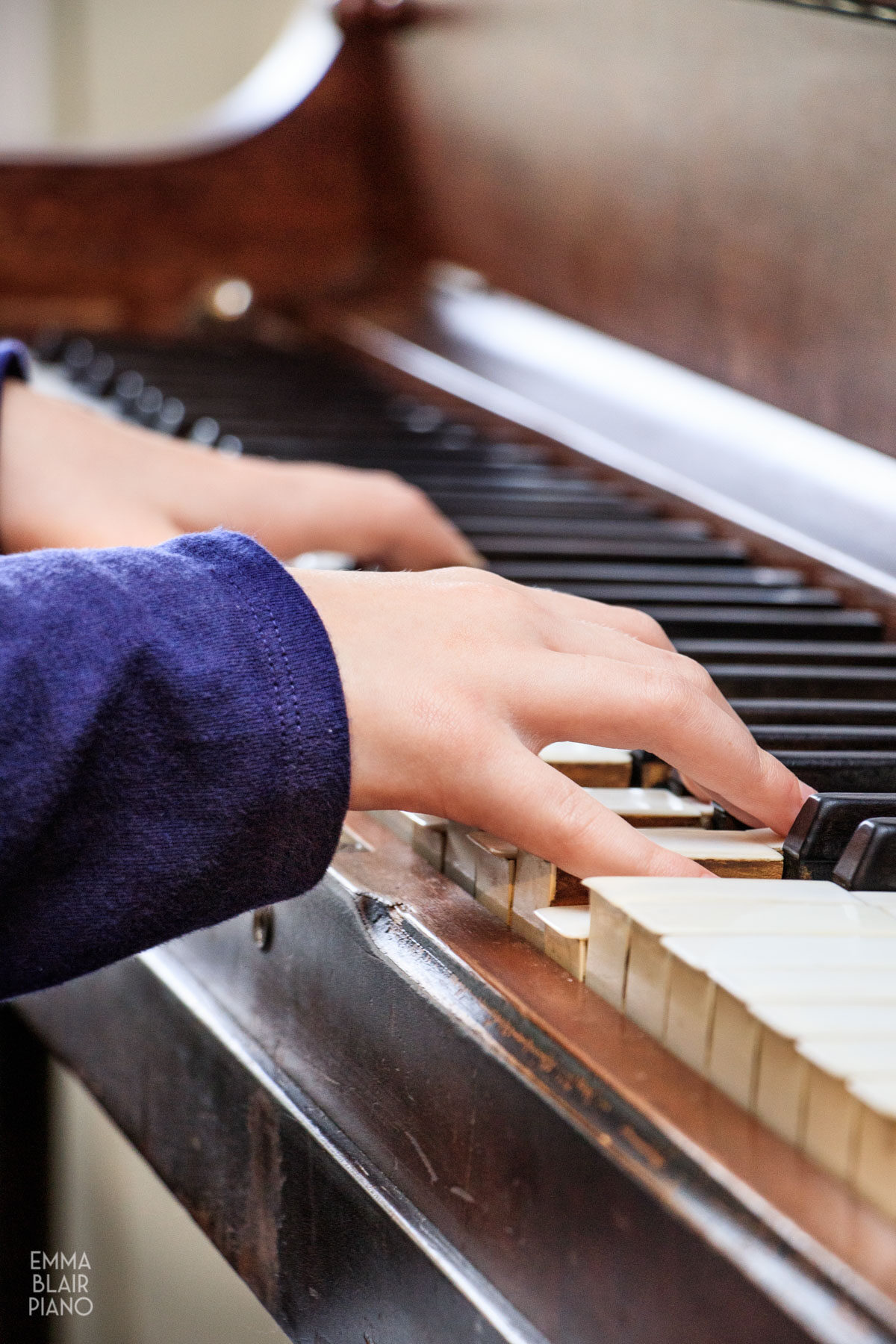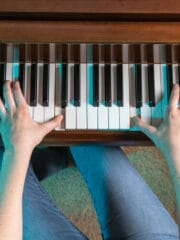It's exciting to start learning a new piano piece, but it can be overwhelming and even discouraging when you're not making the progress you want. Let's explore some great ways you can maximize your practice time, break your piece into manageable sections, and achieve your goals. There's no need for you to be discouraged about a hard piece--learn how to attack it and come out stronger and more skillful at the piano!

The Right Music
Choose a song at your level. Choosing a piece that is too difficult for you will be frustrating and time consuming. If you're unsure if a piece is at your level, ask your piano teacher. However, you do want to challenge yourself, so don't choose only easy songs!
Get some tips on choosing the right piano music to make sure you're selecting music that will help you progress as a pianist.
Make sure the sheet music is high quality. Poor quality music that doesn't have good spacing, leaves out fingering, or has other issues will make learning a song much more difficult. Purchase sheet music directly from the artist, in a printed book, or from a reputable online sheet music website.
How to Practice
Learn 2 measures at a time. Most students try to learn large sections of music at once, which is overwhelming and ineffective. Focus on learning a small bite of music at a time until you have mastered it, then move on to the next bite. A bite can range from 2 measures all the way down to half of a measure, depending upon the complexity of the piece.
Perfect it, then move on. How do you know when to learn the next 2 measures? A good benchmark is seeing if you can play the measures three to five times in a row without making a mistake. If you can do this consistently, you're ready to move on to the next new section.
Practice hands separately at first. This is especially vital for beginner and intermediate pianists, but even advanced pianists should stop and practice parts of their pieces hands separately if they are having trouble. Playing in two clefs with two hands is a lot for your brain to process, so breaking it into more manageable chunks will make the music easier to learn.
Don't be afraid to write on your music. Write down complex counting or fingering, emphasize sharps or flats that you always forget, circle dynamic markings, or write down the names of notes you consistently miss. Putting things down on paper will give you a visual reminder and helps clear your mind, allowing you to focus on other aspects of the piece.

Go slow. The slower you go, the faster you can play. This is so true! You'll make lots of mistakes, become frustrated, and make very slow progress in learning a piece if you try to play it at too fast of a tempo. Learn the whole piece at half the performance tempo or even less; then, once you've learned the whole thing, work on speeding it up.
Check out these great tips for learning how to speed up a song quickly.
Always force yourself to progress. Don't play the first page of a song over and over simply because it's fun; you always need to be pushing yourself to learn new measures and sections of a piece. It's more fun to only play what you already know, but you need to keep chugging along to make progress!
Focus on new material first, then review old material. Most students start practicing a song on page 1, then progress to page 2. This isn't a very effective approach, as students will always practice what they already know instead of learning the new parts of the piece. Force yourself to perfect 2 measures of a piece at a time, then move along to the next 2 measures. Don't stick only to what you already have learned!
Be consistent. If you're only investing time in practicing once or twice a week, you will make very slow progress. Commit to practicing your new piece at least 5 days a week for a certain length of time, and you'll instantly see improvement.

Troubleshooting
Are you experiencing some of the following issues while learning a song? Keep reading for solutions to each of these common problems.
- I'm not making progress fast enough. This can be caused by a host of issues! Start by making sure you're practicing correctly and for enough time each week. Be patient--you should be seeing progress if you're doing things right.
- I keep messing up this part. Work on the trouble spot over and over again and play it at a ridiculously slow tempo. Play that spot hands separately 3 times in each hand, then 3 times together. Write down fingering, notes, or counting if needed. Listening to a recording of the piece on a smart phone, tablet or lap top may also help.
- I'm frustrated and tired of this piece. Take a break! Do something musical, like listening to your favorite piano album (I love listening to Beegie Adair) or watching funny piano videos (this one is great!) instead of practicing. When you come back to your instrument, you'll have a fresh mindset and be ready to work with a good attitude.
- This song is taking too long to learn. Either you haven't been practicing it long enough or diligently enough, or the piece might be too difficult for you. Ask your teacher's advice to see if the song is at your level.
- I'm bored. Change up your practice routine and make it varied and fun. For example, break up your session into shorter blocks, and reward yourself when you meet your goals. Keep yourself inspired by having a great teacher, listening to other musicians, and reminding yourself of all the progress you've made.

Conclusion
Have you implemented any of these tips in your practice routine? Do you have any tricks for helping your piano students learn songs faster? Let me know in the comments; I always love to hear your tips and suggestions!
Follow Emma on Pinterest, YouTube, Instagram, and Facebook for more tips on becoming an amazing pianist!
Other Piano Articles to Help You Become a Great Pianist!






Brooke
Another way to learn a piece quickly is to look for patterns. If your brain can see a pattern it will stick. Try to identify the patterns and themes by studying the score and writing in one word notes on your sheet music. It helps to know what is coming up. It's a simple strategy but effective when combined with other techniques and tips.
Emma
That's a great tip! Identifying the type of chords, chord progressions, and other technical elements in a piece can help one pick up the notes and timing so much faster.